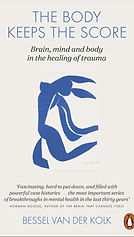

Art Therapy | Yoga | With Chloe
Create . Connect . Heal.
* no art or yoga experience needed *
Art Therapy Resources
Supporting your creative therapy journey, at home or in the studio
Art materials are an important part of art psychotherapy, helping you express thoughts and feelings that may be difficult to put into words.
This art therapy materials guide offers simple, flexible suggestions for clients preparing for sessions. For those attending online, its a guide of what to bring to your session. And for those attending in person at my Manchester studio you will find these material's and many more available to use throughout your sessions. You might like to gather pencils, colouring pencils, pastels, watercolours, paintbrushes, clay or playdough, a range of papers, or a basic set of paints. Choose what feels right for your process. Sometimes a single material is all you need. If you’re working from home, you’ll also find ideas here for online art psychotherapy preparation, such as creating a calm space and storing artwork safely between sessions.
These creative therapy resources are here to support you in feeling ready and inspired for your sessions, whether you’re exploring art therapy at home or in person.
Therapy Resources
Welcome to a space to explore, learn, and feel supported on your journey. I've created this page with fellow art therapists, art trainee's and yoga students in mind. This pages offers clear, accessible resources which are a sneak peak into an art psychotherapist toolbox. Whether you’re a prospective client, parent, carer, or professional referrer, it’s designed to offer psycho‑education that’s relevant, humane, and grounded in your lived experience as well as creative ways to express yourself.
RECOMMENDED READING
For those who are training, new qualified or thinking of undergoing the art therapy training. A list of books I have read that I have found to be the most insight for working with my clients.

THE DRAMA OF
BECOMING A CHILD
A short book that covers a huge topic of the impact of parenting on childhood. Think, developmental trauma and intergenerational trauma.
A book that goes into insightful detail of how trauma is stored within our bodies and our minds. This is explored through clinical case studies published in 2014.

THREE VOICES OF
ART THERAPY
This is a great book which opens the door on art therapy sessions with a client. Each chapter describes a session from the art therapists understand, the clients and theory! I highly recommend this book for all thinking about studying art therapy, trainee's and any art therapists that have not yet come across it.

THE BODY KEEPS
THE SCORE
SIGNPOSTING
I am unable to provide crisis services, if you feel unable to cope or keep yourself safe, please contact your GP or 111 immediately, or an organisation who specialises in crisis support.
| Samaritans 24/7 Service – 116 123 |
| Childline – 0800 1111 |
| Young Minds Parent Helpline – 0808 802 5544 |
|Mind, Anxiety UK – 03444 775 774




















